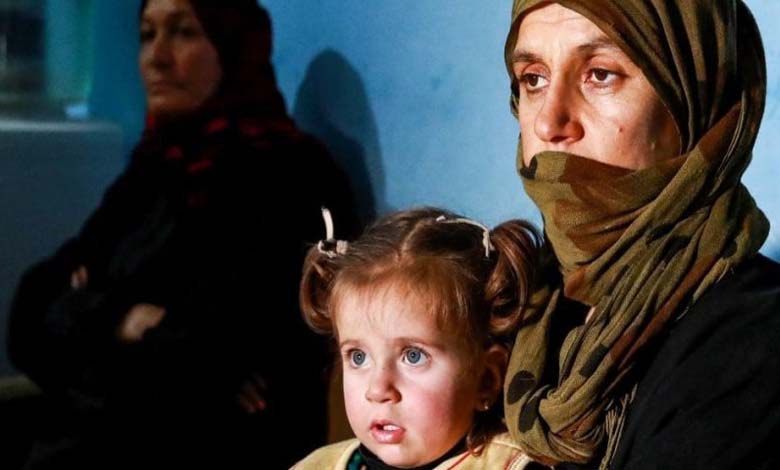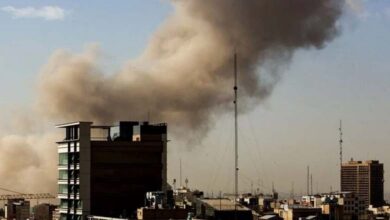Returned from Death: A Decade of Struggle for the Reunification of Missing Yazidis

Ten years of pain and suffering, often ending in heartbreak, define the attempts to reunite missing Yazidis in Iraq.
-
A Decade After the Genocide… the Suffering of the Yazidis Has Not Ended
-
Outdoor people… We survived the bombing of Turkey in northern Iraq
Messages from anonymous users on Facebook offer a glimmer of hope for finding the missing members of Iraq’s Yazidi community, even a decade after their disappearance.
These messages have rekindled the possibility of reuniting families who had lost hope of seeing their loved ones again, abducted and enslaved during the reign of ISIS.
In one of the latest chapters of this tragedy, Reuters highlighted stories of families desperately searching for their missing loved ones. Among these stories is that of Aydin Hadid Talal, a young man in his twenties who received messages from an anonymous Facebook account asking about his missing brother, Rojin, according to Reuters.
-
Report: ISIS without land but it adapts and its threats persist
-
Attack on Saraya al-Salam Headquarters Disrupts Security Calm in Diyala
The sender asked, “Can you call me?” Aydin replied, “No, I can’t. I don’t know you.” The reply came: “I’m Rojin.” The last time Aydin saw his younger brother was in March 2019, when they were both captives of ISIS in Syria. Aydin requested a photo for verification, and indeed, the photo confirmed his identity. They later exchanged a video call that lasted over two hours, filled with longing and emotion, but it was evident that the reunion would not be easy.
To reunite with his brother, Rojin had to cross territories controlled by the Syrian Democratic Forces (SDF), a Kurdish-led coalition, and then cross into Yazidi-populated areas in northern Iraq, despite lacking identification or travel documents.
-
Fears that ISIS may exploit regional wars to re-emerge in Iraq… Details
-
Iraqi Militias Threaten Devastating Response if Israel Assassinates al-Sistani
Back from the Grave
According to Iraqi officials, over 5,000 Yazidis, mostly men and elderly women, were killed during the initial ISIS attack in August 2014. Their bodies were dumped into mass graves.
About 6,400 others, primarily women and children, were abducted. Local authorities state that approximately 2,600 are still missing.
Aydin and Rojin were captured with their parents and two younger brothers on the first day of the attack on Sinjar, August 3, 2014. They told Reuters that ISIS fighters intercepted their car as they tried to flee their village of Hardan.
-
Iraqi Factions Shell Israel: A New Offensive after the Golani “Breach”
-
UN Support for Regularizing Their Status: How Will the Iraqi Government Deal with Returnees from Al-Hol Camp?
As ISIS began losing territory, the brothers were repeatedly moved between Iraq and Syria, eventually ending up in the Syrian village of Baghouz.
“ISIS is His Family”
In a similar story, a young man named Adnan Zandinan received a Facebook message from his younger brother, who had been recruited by ISIS as a child.
Adnan described the moment emotionally: “My hands were shaking. I thought one of my friends was playing a joke on me.” However, his joy quickly turned to disappointment when his brother refused to leave Idlib, Syria, where he now resides.
-
Most of Them from Turkey and Syria… The Federal Ministry of Justice Reveals the Number of “Daesh Children” in Iraq
-
Iranian Maneuvers Near the Iraq Border: Signs of a Possible “Response”?
Despite this, Adnan has not lost hope and continues to message his brother, adding, “My brother believes ISIS is his family and doesn’t realize his real family is here.”
Inadequate Assistance
On the outskirts of the Kurdistan region, tens of thousands of displaced Yazidis still live in tattered tents. While some use financial aid from the Iraqi government to return to Sinjar, others find the assistance insufficient.
-
Iraqi Move to Release Frozen Iranian Funds in Baghdad
-
Has Iraq begun to recover economically after years of crisis?
Their challenges go beyond poor living conditions in the camps, extending to security concerns, as ethnic and religious armed groups that helped expel ISIS from Sinjar refuse to demobilize, according to Reuters.
Additionally, job opportunities have significantly dwindled, particularly as many displaced individuals were unable to continue their education due to the war.











